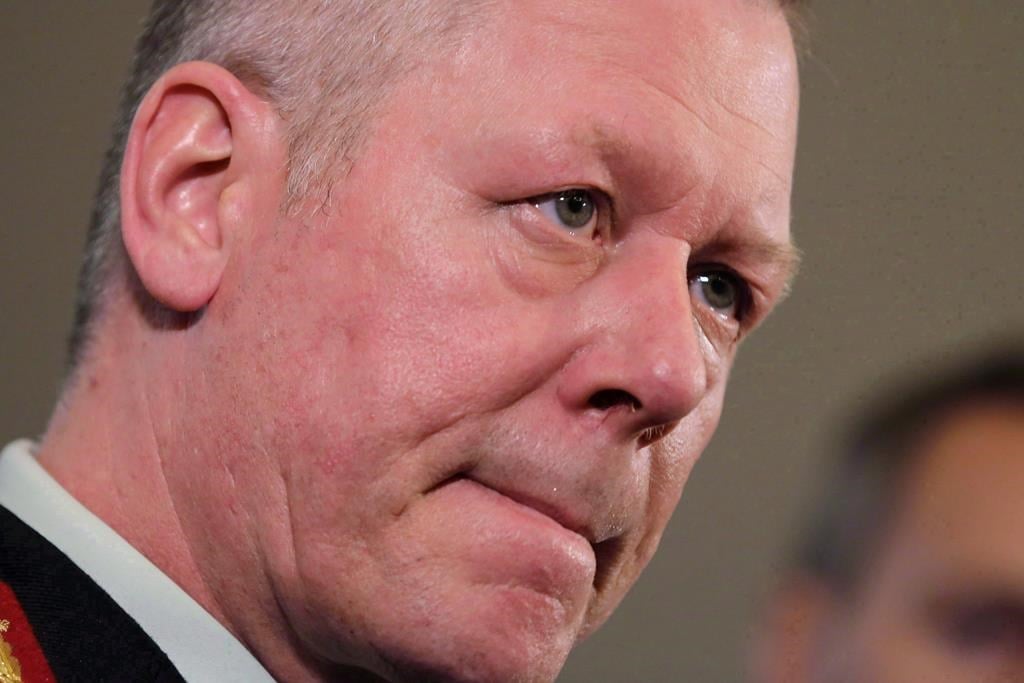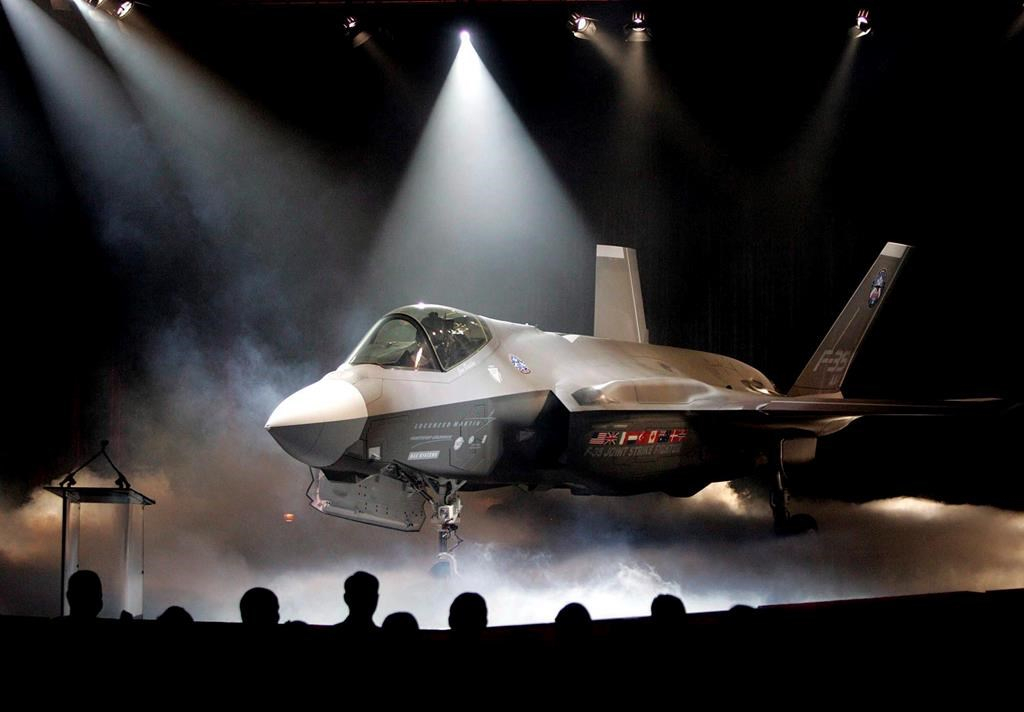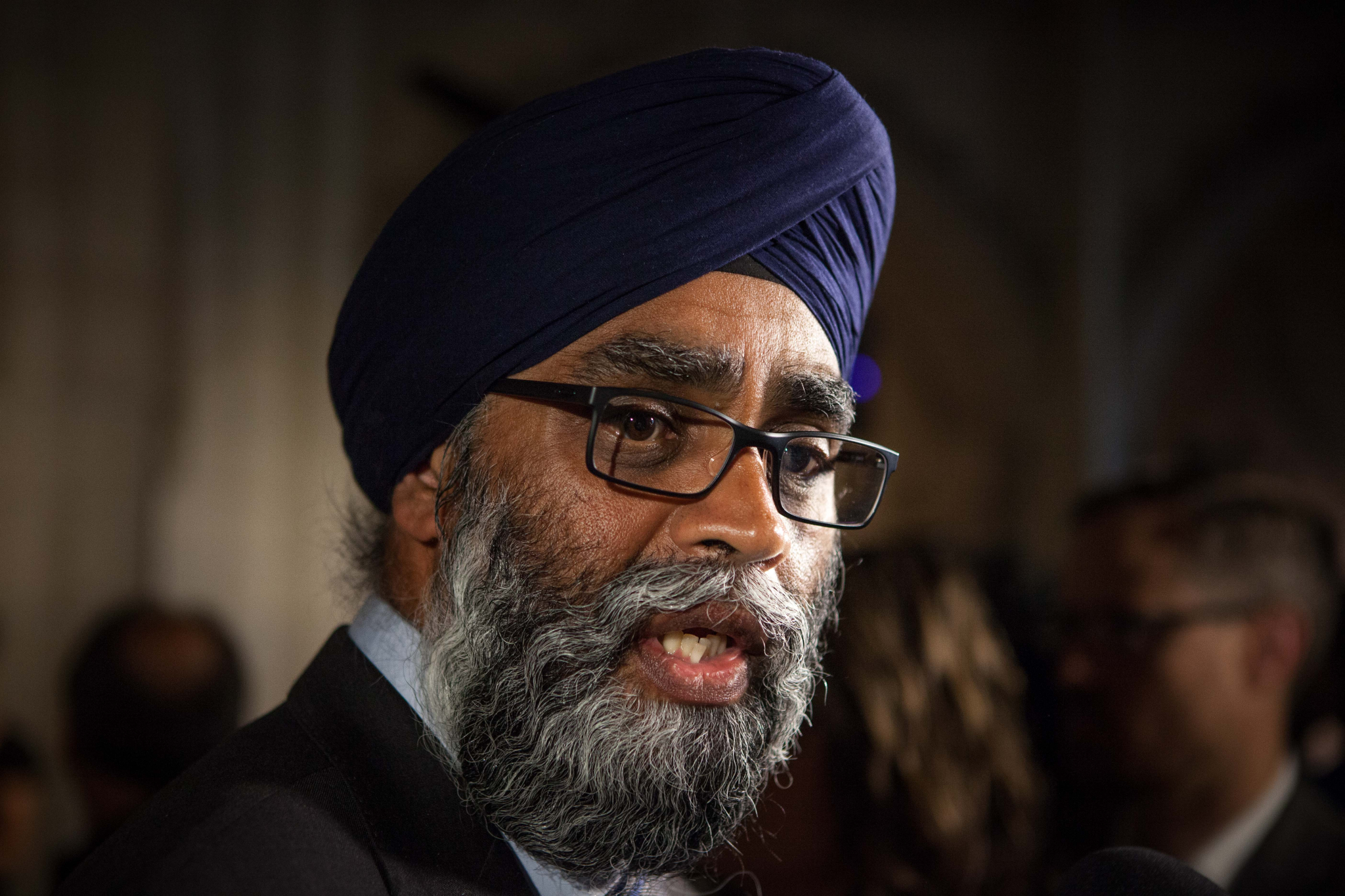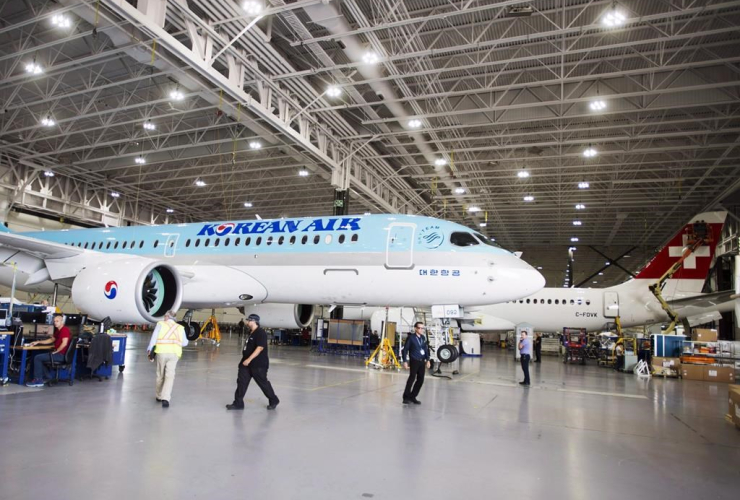Trudeau ministers swooped into Ottawa on Tuesday to announce they would press the eject button on military contractors deemed “responsible for harming Canada's economic interests.”
Four federal government ministers and Canada’s top soldier made the announcement as they unveiled the latest competitive process to buy 88 new fighter jets.
"We're establishing a new test where we will be looking at economic harm," said Innovation Minister Navdeep Bains. The test will be added to technical and financial requirements.
The decision comes as Ottawa remains locked in a trade dispute with Boeing, a U.S. aerospace and defence firm that the Trump administration rewarded by slapping a 219-per-cent duty against its Montreal-based competitor Bombardier.
Canada said it would be turning down an offer to buy 18 of Boeing’s Super Hornets, and instead is planning to buy 18 second-hand Australian F-18 fighter jets to fill a capability gap the military acknowledges already exists.
While Bains said the government “fundamentally disagrees” with Boeing, and that the trade complaint “is without merit,” he and other ministers stressed that no firm is being deliberately excluded from their new process.
"What Boeing should take away from the announcement today is that they will be eligible to submit their proposal, and once we have all the proposals we will assess them based on a number of criteria,” said Transport Minister Marc Garneau.

Top soldier calls used jets ‘logical choice’
Canada has received one part of the Australian cost proposal and is expecting the other half, focused on spare parts, to be delivered soon, ministers said.
The government will then officially respond to Australia and start the export approval process with the U.S. State Department that is needed for sensitive military technology.
Defence Minister Harjit Sajjan said he expected that part to go smoothly. "We have a wonderful defence relationship with the U.S.,” he said.
The government has been “wrestling” with how to portray the purchase of used fighter jets, The Canadian Press reported last week. Canada bought second-hand submarines from the U.K. in the 1990s, and one caught fire and killed a naval officer.
Chief of Defence Staff General Jonathan Vance said that incident was due to "completely different circumstances.”
"We wouldn't be proceeding...unless we knew we would fly it and be confident,” he said. “We are experts at running CF-18s." He called the used Australian jets a "logical choice.”
"Make no mistake: these aircraft will work fine, and these aircraft are very much needed,” he said.

New test to ‘incentivize’ good behaviour
Canada already tests for technical and financial considerations when measuring military procurement bids, noted Public Services and Procurement Minister Carla Qualtrough.
The new test means that the government will be looking at all aspects of a firm's business on the Canadian economy. That's a much broader way of treating firms than the previous examination, which looked at how, for example, one fighter jet purchase might contribute compared to another fighter jet.
"This new assessment is an incentive for all bidders to contribute positively to Canada's economy,” said Qualtrough. "When bids are assessed, this will mean that bidders responsible for harming Canada's economic interests will be at a distinct disadvantage compared to bidders who aren't engaged in detrimental behaviour.”
Bains said the new policy will examine "if there's an impact on Canadian jobs, if there's an impact on some of the key sectors of the Canadian economy.”
As well, Qualtrough noted all the details hadn’t yet been figured out. “This assessment will be developed through appropriate consultations and all proposals,” she said.
It’s a test that will be applied to future procurements as well, she said.
Canada is expected to hold an industry day on Jan. 22, 2018, then receive expressions of interest by Feb. 9, 2018. The government expects to begin the evaluation in 2019.
Only after that point — in “late 2019, 2020,” said Qualtrough — will the evaluations of a firm’s economic impact happen.
"We're hoping this policy incentivizes all suppliers,” she said.

F-35 still not ruled out
The new procurement process from the Liberals represents the latest twist in an epic government procurement mishap — one that the Trudeau government insists will go differently this time.
It was almost eight years ago that the former Conservative government under Stephen Harper announced it would buy U.S. defence giant Lockheed Martin’s F-35 fighter jet.
But after the fanfare died down, it was revealed that the military’s statement of requirements for a fighter jet replacement had been written specifically so that only the F-35 could meet the requirements -- leading the Liberals to accuse the Conservatives of bid rigging.
"The previous government planned to purchase 65 fighters but did not actually purchase any,” said Sajjan. “They did not cost them accurately and they did not fund them adequately.”
The F-35 was ruled out by Prime Minister Justin Trudeau when he was on the 2015 campaign trail.
But last month, Qualtrough said the government was "100 per cent" open to procuring the F-35 through a new process.
Vance said the military revamped its statement of requirements for new fighter jets after the Liberals released their defence policy in June.
“That [statement of requirements] was updated and has since been submitted to the minister,” said Vance.
It will allow for “competition,” including removal of a "stated, high-level requirement to have stealth” that had been the F-35’s main highlighted capability.
"We're confident that this is consistent with our international obligations,” added Bains.






Comments